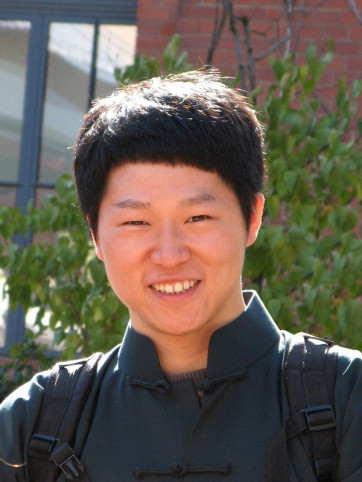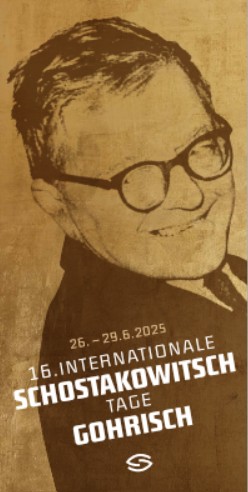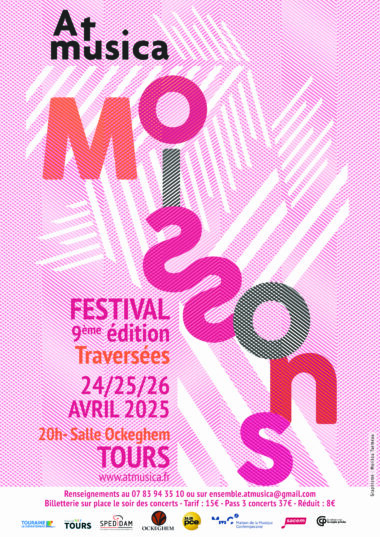Plus de détails
Across the world one can find hundreds of youth orchestras, and some became very famous such as the Simón Bolívar Symphony Orchestra in Bolivia. Other youth orchestras aim at bringing different cultures together, and in this category the West-Eastern Divan Orchestra deserves a prominent place. While China is a booming economy and is now well known for his star soloists like Lang Lang, Yuja Wang, Liu Wei or Yundi Li, it has not yet achieved to develop the same international recognition for its orchestras. A young man, Zhenyu Zeng, aims at both elevating the quality of Chinese orchestras and building a bridge between China and Europe. To understand why and how he can achieve such an ambitious goal, ResMusica met him in Paris where he started the China Europe Youth Orchestra project.
 « We need musicians for orchestras, we don't need so many soloists. »
« We need musicians for orchestras, we don't need so many soloists. »
ResMusica: How have you been introduced to classical music?
Zhenyu Zeng : When I was 16 I was a professional opera singer for a theatre company, but the director of advised me that I should not waste my time. The reason was that Chinese opera did not have support from the government, there was only two productions performed per year but nothing new, so I had not chance to go on stage. So I took the National College Entrance Examination, which is very competitive as 6 million young people take this examination! I spent four years at the China Conservatory of Music, where I learned singing, arts and administration. I also learned orchestral music and got to love contemporary music, which is very creative.
RM: And how did the idea of the China Europe Youth Orchestra (CEYO) started?
ZZ: When I was student at the Shanghai Theatre Academy, I had the chance to translate traditional Chinese theatre to European officials, and one month later I could get support from the Goethe Institute and Free University Berlin to come to Europe and learn cultural management. I could do internships in Florence and Paris and travelling in Europe changed my life and my way of thinking.
RM: In what way?
ZZ: My teachers in China were not very right when they were speaking about culture in Europe. People there are so proud about China, they say Europe is not so good. What I found is that people here are very nice, the world is beautiful and we need a new understanding. I feel I can do something to make people know better each other.
RM: Hence is the idea of this orchestra?
ZZ: In Germany I could see youth orchestras and I thought we could do the same for China and Europe. I discussed it in Paris and got support from Gilles Demonet who is director of music management programs in la Sorbonne, and from Jean-Luc Tingaud who leads OstinatO. But CEYO was too big for OstinatO, so we had to find other supports in Paris, which came from the Centre culturel de Chine and from the Maison du Limousin. Politicians from the Limousin region, and Galicia region in Spain, are interested in China.
RM: How do you recruit the musicians?
ZZ: We do national auditions, and musicians who want to come back have to do the auditions. Some did and failed because the quality had improved. Students from 7 conservatories participated in 2012, and from 9 conservatories in 2013.
RM: When did CEYO started?
ZZ: We started to perform in concerts in 2012, but it was only in China as we did not have enough budget to perform in France. We had 15 French and 37 Chinese musicians in orchestra, compared to 55 French and 38 Chinese musicians this year. We gave concerts in prestigious places, like the Tianjin Concert Hall which is one of the oldest concert hall (it was opened in 1922), the Peking University Hall, which is like Harvard, or the Shanghai Oriental Art Center, where the Berlin Philharmonic performs. I know the people managing the center personally, and they agreed to help us financially. In the Beijing Capital Museum, it was the first symphonic concert given in a museum in China ever! We got twice the number of people we could accommodate, so people broke the doors to get in, the director had to call the army!
RM: A few weeks ago you performed for the first time in Paris and Massy, how was the experience?
ZZ: This orchestra is a seasonal orchestra, and a lot of things are done at the last minute, so not everything is perfect. Musical education in China is still weak and our conductor Philippe Aïche, was sad and disappointed when he heard the musicians, and Bruno Mantovani, the Director of the Conservatory, was worried and stressful. After the first rehearsal, the Chinese musicians realised the situation and we admitted we were not as good. We had to do something, and the choice was to exclude some musicians or cancel the concerts. Our musicians did not want that, so what they did was to practice until half past midnight, and at 8 am they were already practising again. When I see how much progress they made, I am so proud of them. And the conductor was happy.
RM: How is this project funded?
ZZ: In China the economy is not as good as people think, rich people don't donate money, working behaviour is different. The only people who were paid this year was the conductor and the cellist who played in our concerts in Massy and Paris. 80% of the funding came from China this year, but it can't go on like this. I wish to stay in France, but institutions are careful, most people wait for the success, this is why I value the financial support which was provided by the General Council of the Essonne department.
RM: What are the main benefits of developing this initiative?
ZZ: In China the focus is on soloists and prizes in competition. This is a way to go higher in university and for professors to get promoted but this is not right. We need musicians for orchestras, we don't need so many soloists. There is a lot of cooperation between musicians, but most is to go to festivals, to follow master classes, which is not really cooperation. I only want to have musicians who cooperate. No one wants to play in orchestras, and this is not good. Young musicians who want to join CEYO have to agree with me on that, and then they can come. If you attend our rehearsals, you will find that the young musicians from China and Europe are really brought together by our project. Not only they are challenging themselves together to achieve a common music goal, but also they build friendship, and come closer to each other's culture.
RM: And in terms of relationships between the French and Chinese young musicians?
ZZ: At the beginning, French people did not talk. The Chinese were angry because the French were not ready in time, and the French were not happy with the low level of the Chinese musicians. Later, they learned how to kiss a girl to say hello, and they hang out after rehearsals. The real meaning of a youth orchestra is not the music itself, it's to bring the young people together.
Plus de détails
Across the world one can find hundreds of youth orchestras, and some became very famous such as the Simón Bolívar Symphony Orchestra in Bolivia. Other youth orchestras aim at bringing different cultures together, and in this category the West-Eastern Divan Orchestra deserves a prominent place. While China is a booming economy and is now well known for his star soloists like Lang Lang, Yuja Wang, Liu Wei or Yundi Li, it has not yet achieved to develop the same international recognition for its orchestras. A young man, Zhenyu Zeng, aims at both elevating the quality of Chinese orchestras and building a bridge between China and Europe. To understand why and how he can achieve such an ambitious goal, ResMusica met him in Paris where he started the China Europe Youth Orchestra project.





 « We need musicians for orchestras, we don't need so many soloists. »
« We need musicians for orchestras, we don't need so many soloists. »

